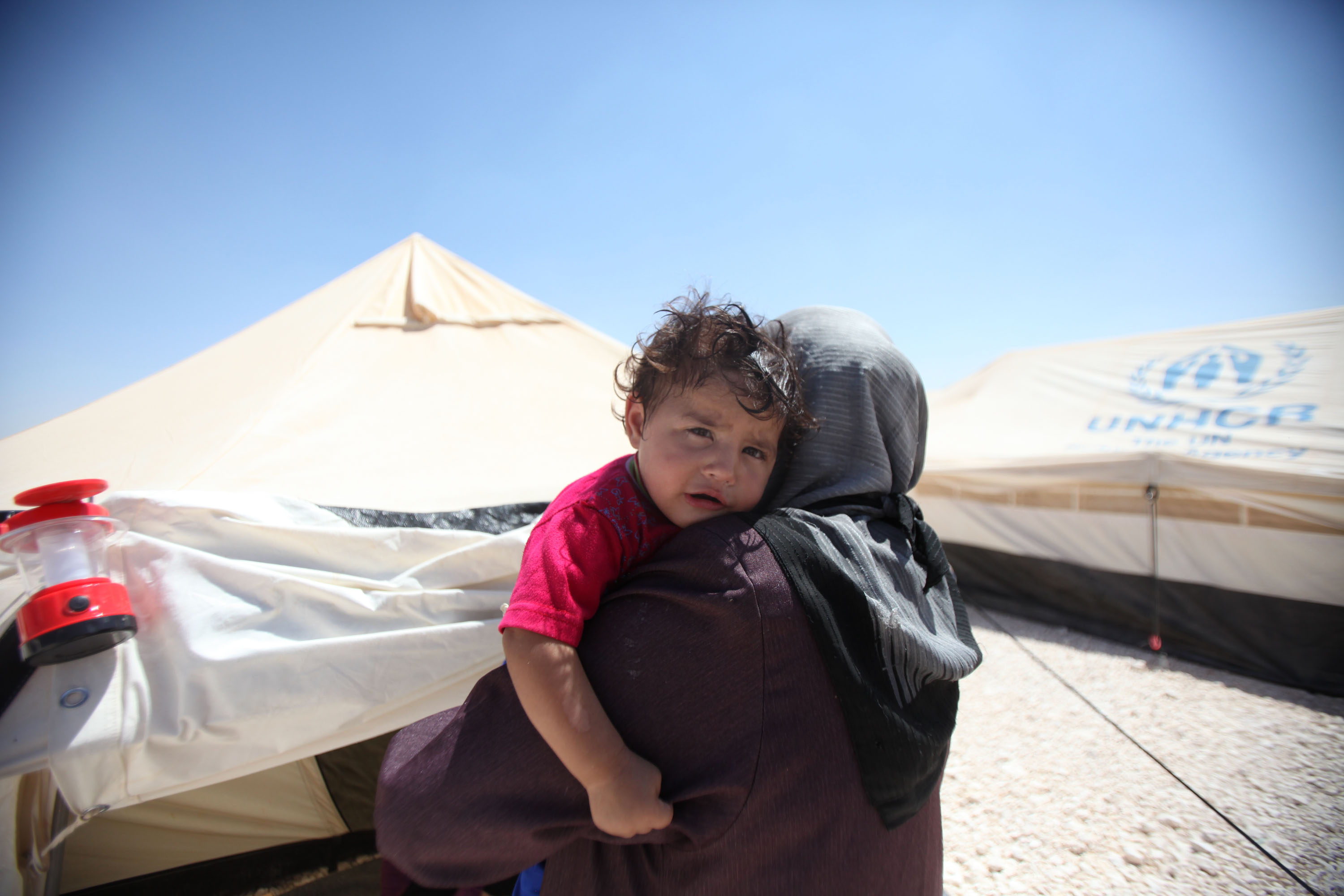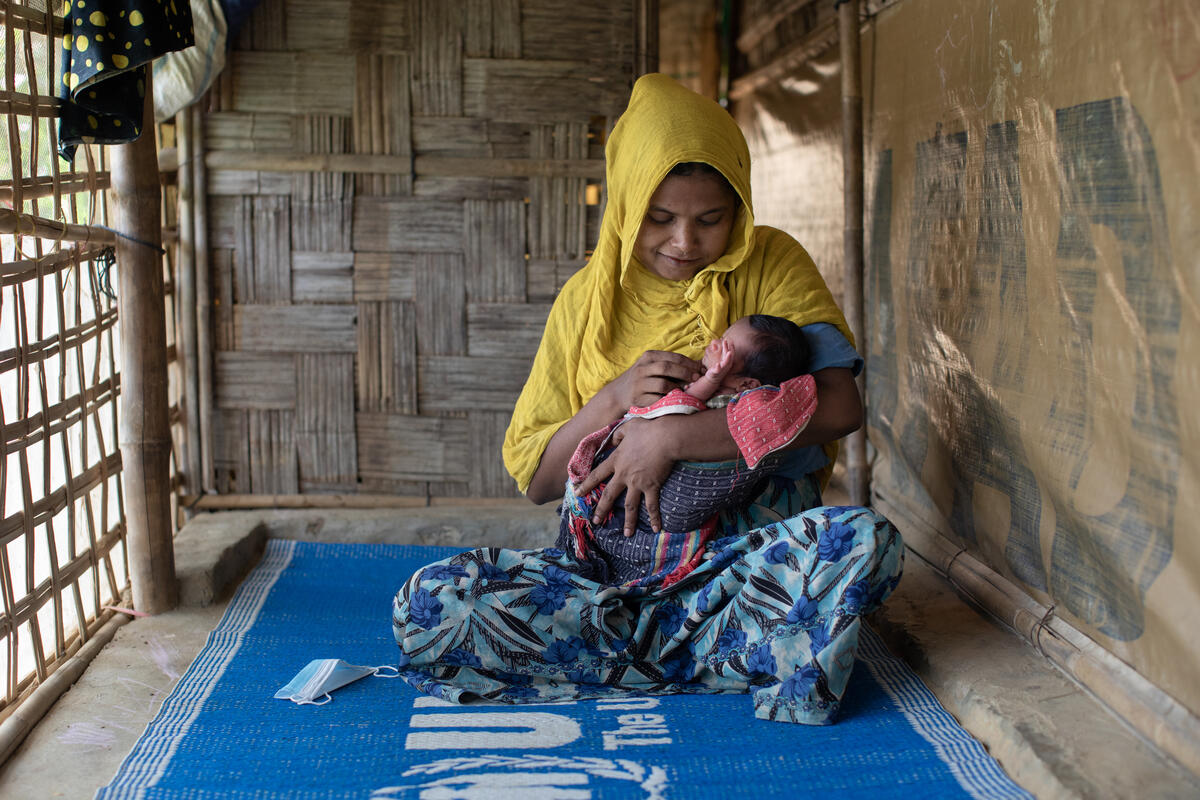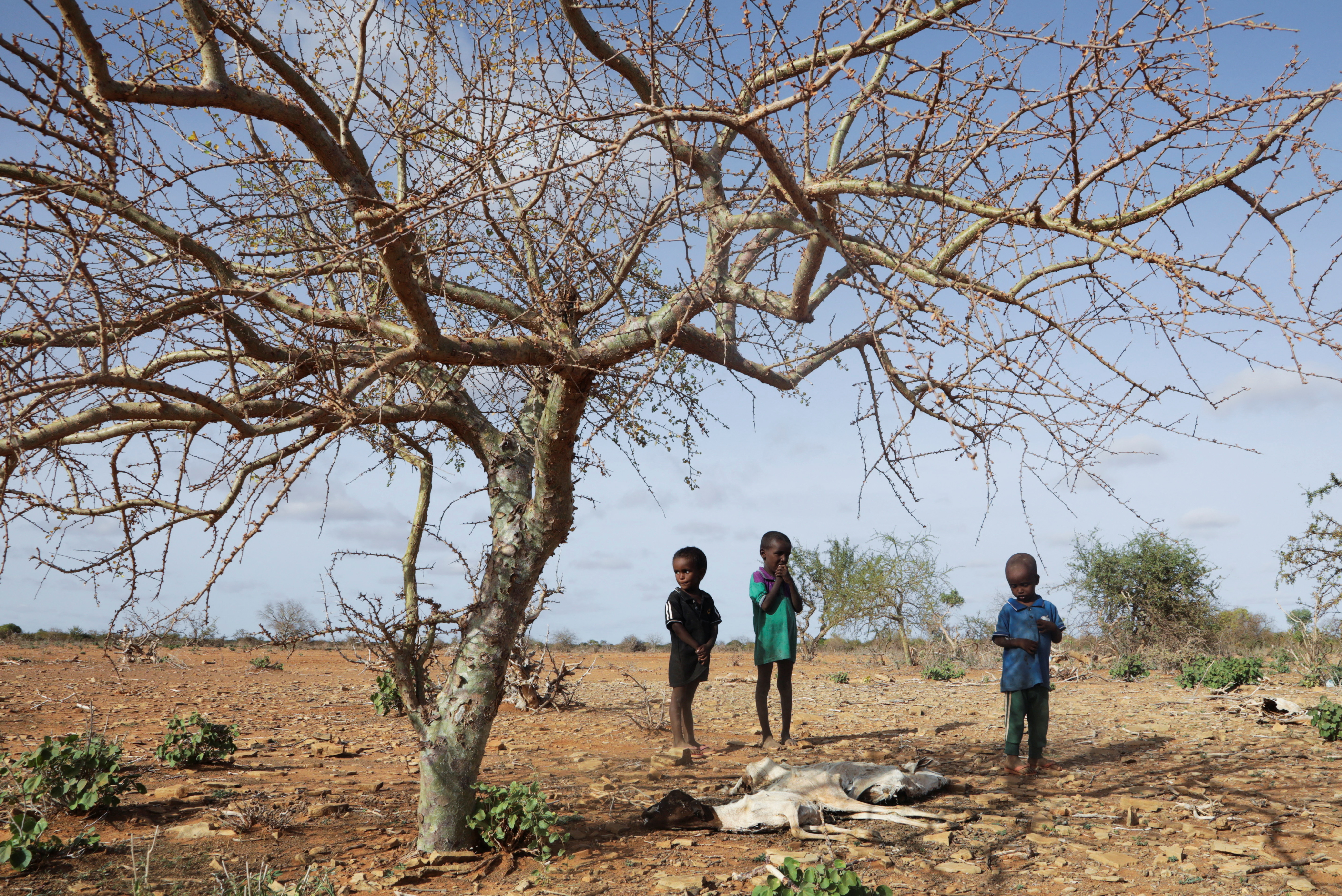UNHCR and partners seek extra US$295 million for Syria refugee ops
UNHCR and partners seek extra US$295 million for Syria refugee ops

GENEVA, September 27 (UNHCR) - The United Nations and its humanitarian aid partners on Thursday called on donors for US$295 million in extra funding for operations to help hundreds of thousands of Syrian refugees.
The revised appeal, covering the humanitarian needs of a forecast 700,000 refugees in neighbouring countries by the end of the year, ups the amount sought from US$193.2 million to US$487.9 million. To date, US$141.5 million has been received from donors for the inter-agency Regional Response Plan for Syrian Refugees.
There are 294,000 Syrian refugees registered or awaiting registration in neighbouring countries, compared to 41,500 Syrians in March, when UNHCR and its partners issued a first appeal for US$84.1 million. This sevenfold increase in the number of refugees has brought about a surge in the humanitarian response and a vastly expanded plan of action to respond to the needs of Syrian refugees as well as future arrivals.
Every day, two to three thousand refugees are crossing into neighbouring countries. "Many refugees are arriving with only the clothes on their backs," said Panos Moumtzis, UNHCR's regional coordinator for Syrian Refugees. "Some have been displaced many times before leaving Syria. They need humanitarian assistance from day one."
The continued violence in Syria has prompted humanitarian agencies to prepare for a further increase in the numbers of refugees, taking into account the impact on refugee-hosting countries and communities. Whereas the March appeal projected an estimated 100,000 Syrians becoming refugees by the end of this year (a number that was passed in July), this appeal estimates up to 700,000 Syrian refugees in neighbouring countries by December 31.
"Jordan, Lebanon, Iraq and Turkey have set the example, keeping their borders open for Syrians fleeing violence. The neighbouring countries cannot do this alone. The international community must continue to demonstrate solidarity," Moumtzis stressed.
Humanitarian agencies have scaled-up assistance in response to the increase in numbers and needs of refugees, with an increasing sense of urgency as winter approaches, with half the Syrian refugee population living in refugee camps, the majority in tents.
Za'atri camp in Jordan opened late July and today hosts some 32,000 Syrian refugees. Meanwhile in Iraq, Domiz camp in northern Iraq hosts more than 27,000 Syrian refugees. In Turkey, which assumes total responsibility for the refugee camps, the vast majority of refugees - close to 88,000 - are living in 13 camps.
In Lebanon, most refugees are living in rented apartments or with families. As refugees continue to arrive, there are increasing concerns over lack of available shelter. In Jordan, over half of the refugee population is living in rented apartments or with host families, but new arrivals are required to live in the camp.
The World Food Programme (WFP) supports the distribution of food to Syrians in camps and among hosting communities in all four neighbouring countries.
"Humanitarian needs, especially food, are growing, as thousands more Syrians pour into neighbouring countries," said WFP Regional Refugee Emergency Coordinator Edward Kallon. "WFP is responding to cover the food needs of refugees in Iraq, Jordan, Lebanon and Turkey with food distributions, hot meals and innovative food vouchers."
Women and children make up 75 per cent of the refugee population. Education and health care are both priorities in the plan. "The race is really on to ensure that all Syrian refugee children are in school, fully immunized and properly clothed for the cold weather that's fast approaching," said Maria Cavilis, UNICEF regional director for the Middle East and North Africa. "UNICEF is ready to provide this support, but what is missing is the funding."
The revised Regional Response Plan includes 42 national and international NGOs, who were represented at the launch of the appeal by Michael Penrose, humanitarian director of Save the Children International.
"NGOs are at the forefront of the delivery of humanitarian assistance to refugees and host communities across the region, but we need far more support to deal with the number of refugees, which is growing daily," said Penrose.
Second Revision - Syria Regional Response Plan - September 2012







